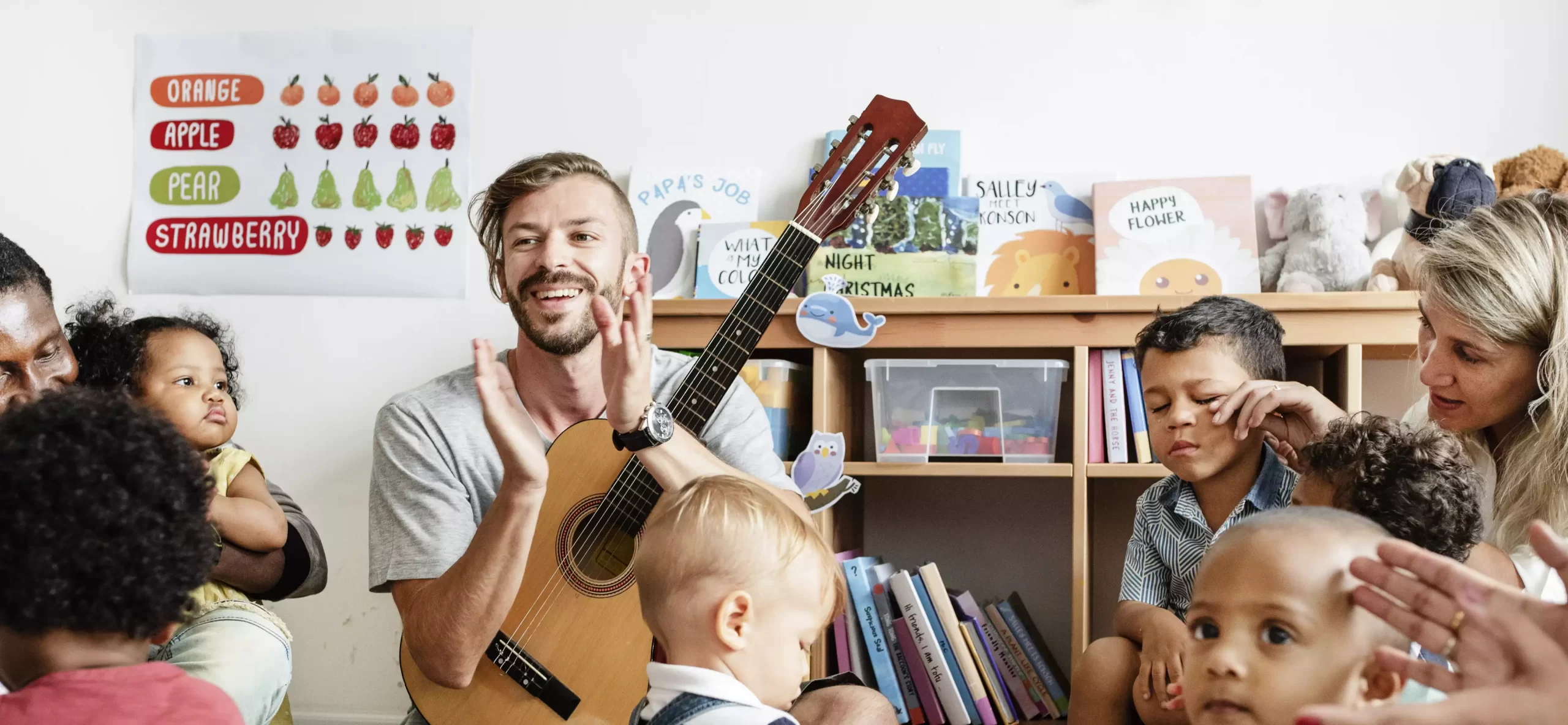Music enriches our lives, and for children, it introduces many learning opportunities in a unique and fun way. At Academe Time we’ve recently introduced our Music Program to many childcare and kinders across Melbourne and as the children interact and engage with the songs and instruments, we are reminded of just how positive music is for their development.
1. Supporting cognitive development
The simple songs we teach kids help with memory, focus and even problem-solving skills. When we introduce an instrument, rhythms and beats it stimulates the brain and encourages the many cognitive functions that they’re developing.
2. Communicating through more than words
As young children are developing language skills, that part of their brain is working overtime. However, exposure to singing, rhyming and rhythm can further support their developing vocabulary, pronunciation and comprehension. They also learn that communication can happen through the emotions that music conveys and the stories it can tell.
3. Listening skills are enhanced by music
Listening is one of life’s essential life skills and music can engage this skill particularly well. Through learning lyrics, rhymes and rhythms, children first listen, absorb, memorise and then replay to communicate through music.
4. Emotional development and social skills
Children are learning to navigate their emotions and express their feelings, and musical activities can help them understand and regulate these.
We love encouraging their self-expression, creativity and building their self confidence through music.
When learning a song or playing together as a group, their big smiles show that they’re learning the joy of sharing music with others.
5. Encouraging motor skill development
In our music program, we utilise small handheld clave rhythm sticks which help develop fine motor skills and hand-eye coordination in children. Adding in clapping, dancing or larger percussion instruments supports their gross motor skill development. And it’s a joy to be a part of!
6. Learning about different cultures through music
Music tells a story and that’s what children from even the youngest age love to hear. With the time-honoured songs that connect us to melody and evoke emotion, to songs that introduce Australian and Indigenous culture to the next generation, our teachers let music introduce culture and connection.
7. Music for mental health
Music can have a positive impact on mental health and introduce children to its ability to influence our emotions. Listening to calming music may help children to relax or alleviate anxiety. Whilst engaging in musical activities promotes emotional wellbeing and personal development.
A child is never too young or old to be introduced to the world of music. Whether it’s through listening, exploring, singing, playing instruments or attending musical events, music can have a wonderfully positive impact on their development, growth, confidence and connection with others.
Music flows through so many Academe Time programs such as Drama, Dance, Circus, Music and Yoga Time classes that we can’t imagine a day without it. Knowing it has such positive benefits is a bonus.
Enrol in an Academe Time class for primary-aged children to attend at their school. Find our preschool, kinder and holiday programs through our partner providers.




